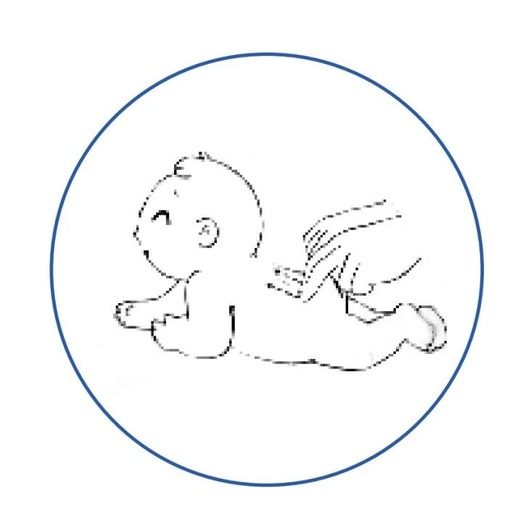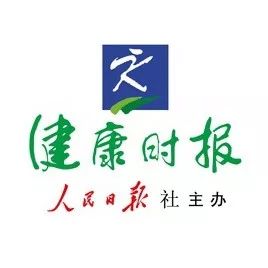
Health Times Authoritative health information, trusted for professionalism!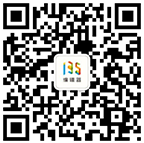
Experts in this article:
Xu Youjia, Chief of Pediatrics, Guangdong Provincial Hospital of Traditional Chinese Medicine
Gao Shan, Associate Chief Physician, Department of Tuina, First Affiliated Hospital of Henan University of Traditional Chinese Medicine
Pediatric tuina is an excellent external treatment method for children aged 0-7, especially for younger children who are not suitable for dietary therapy.
Many common minor ailments in summer can be resolved through tuina.
1. Food Accumulation: Tonifying the Spleen Meridian
Xu Youjia, Chief of Pediatrics at Guangdong Provincial Hospital of Traditional Chinese Medicine, states that in summer, children’s spleen and stomach functions are often poor, especially for those with pre-existing spleen and stomach deficiencies. If food accumulation occurs, symptoms may include bad breath, abdominal distension, and foul-smelling stools. Family members can perform tuina on the Spleen Meridian.
Tuina on the Spleen Meridian can be divided into three types: tonifying the Spleen Meridian, clearing the Spleen Meridian, and pushing the Spleen Meridian. The tonifying technique has two methods: the first involves extending the child’s thumb naturally and pushing along the radial side from the distal end towards the palm base, which is called tonifying the Spleen Meridian (the reverse direction from the palm base to the fingertip is clearing the Spleen Meridian). The second method is to massage the textured surface at the tip of the thumb, known as the “Spleen Meridian Point”; you can hold the child’s small hand and rotate your thumb for 150-300 times.
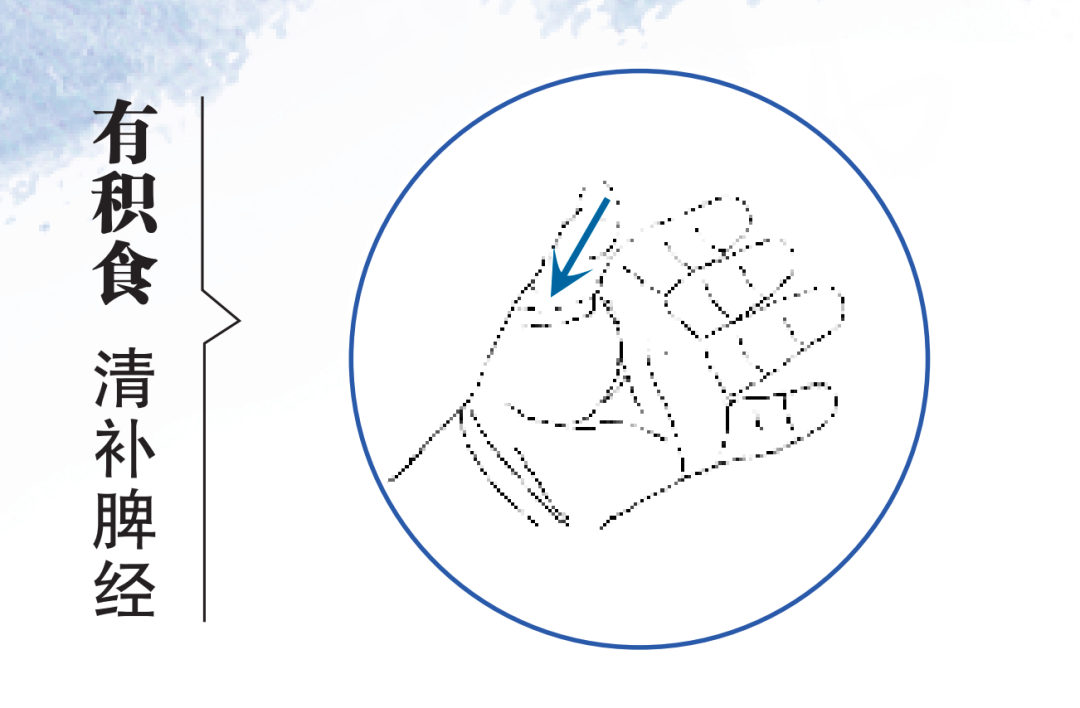
If your child has a spleen deficiency, they may exhibit a pale yellow complexion, fatigue, a thin body, aversion to food, or refuse to eat. If they eat a little too much, undigested remnants may appear in their stools, which may be loose and unformed, and they may sweat easily or frequently catch colds. In such cases, you can perform “tonifying the Spleen Meridian” 300 times daily.
2. Fever: Clearing the Tianhe Water
Xu Youjia mentions that in summer, many children may experience wind-heat colds. There are many methods to reduce fever in children, but I particularly recommend “clearing the Tianhe water,” which is a signature technique in pediatric tuina. It can be used to reduce various types of heat syndromes, both excess and deficiency, without harming the yin.
To perform this technique, push from the midpoint of the wrist crease on the palm side straight to the midpoint of the elbow crease, which counts as one time. For infants under one year, perform about 100 times; for children aged 1-3 years, perform 300-500 times; and for those over 3 years, perform 800-1000 times.
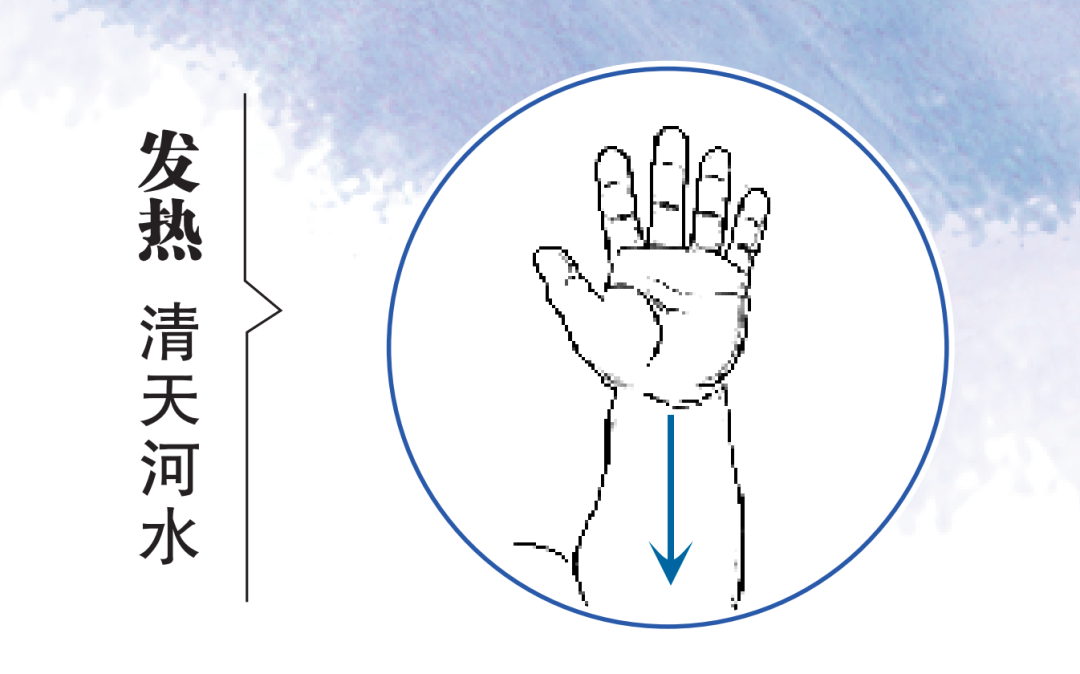
Typically, operate on the left hand; if the body temperature is high, you can use both hands simultaneously or alternately. For younger children who may not stay still for long, it is recommended to operate for 3-5 minutes, take a break, and then continue until the temperature drops to a safe range. Depending on the fever condition, this can be done 1-3 times a day.
During the tuina operation, mothers can use clean water as a medium to enhance the cooling effect; be sure to trim nails and avoid wearing jewelry before the operation; do not feed the baby half an hour before the tuina.
3. Poor Digestion: Abdominal Massage
Xu Youjia discusses that constipation is a common issue for parents with children. Traditional Chinese Medicine offers many effective methods to address constipation, including herbal medicine and dietary therapy. I also recommend pediatric tuina, such as abdominal massage, which has excellent effects on digestion and relieving constipation.
However, constipation can be classified as either excess or deficiency, and the tuina techniques also differ accordingly, so parents must distinguish between the two. Excess-type constipation is often caused by food accumulation or heat stagnation, typically with a short duration and mild symptoms. Children may have dry, hard stools, often accompanied by abdominal distension and refusal to be pressed, along with symptoms like loss of appetite or nausea. Deficiency-type constipation is usually due to qi deficiency and blood deficiency, leading to insufficient lubrication in the intestines and inability to pass stools, generally with a longer duration and recurrent constipation. Children may have very dry stools but still feel the urge to defecate or be unable to do so.
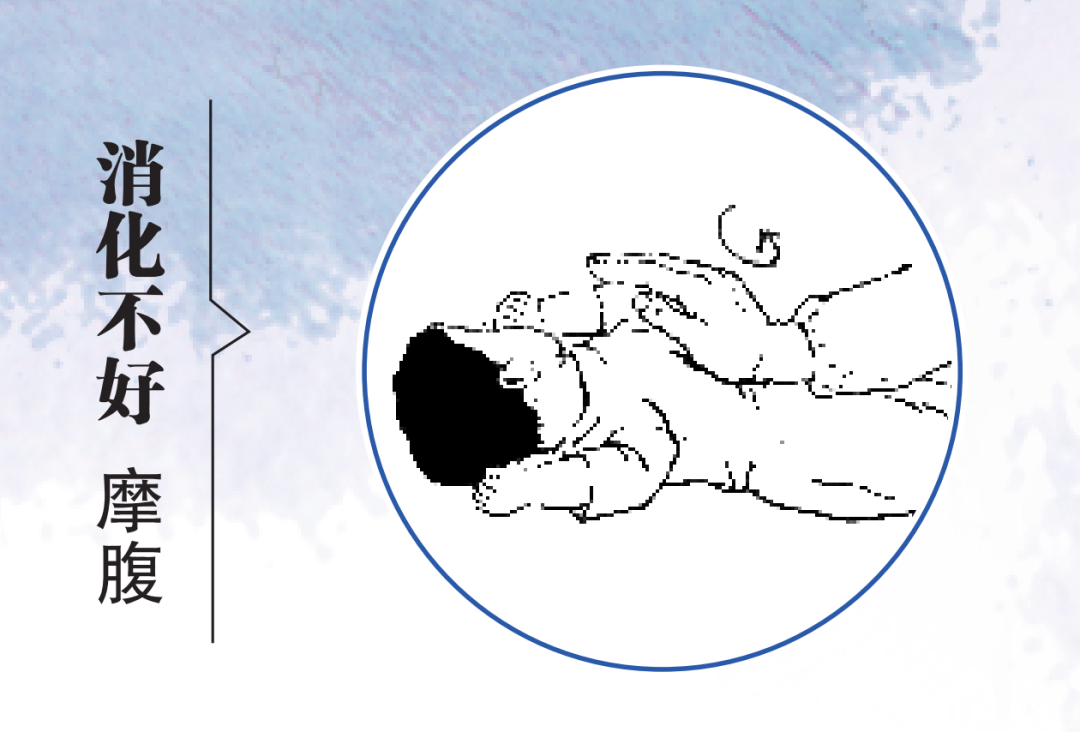
When performing abdominal massage, use your palm or four fingers to press and massage around the navel for 3 minutes. Clockwise massage is for the purging method, suitable for excess-type constipation caused by heat; counterclockwise massage is for the tonifying method, suitable for deficiency-type constipation due to insufficient qi (i.e., weak intestinal motility).
4. Poor Sleep: Rubbing the Xiaotianxin Point
Gao Shan, Associate Chief Physician at the First Affiliated Hospital of Henan University of Traditional Chinese Medicine, mentions that in summer, the heart is associated with the mind. Children are prone to excess heart fire in summer, which can make them more irritable than usual and lead to restless sleep, tossing and turning at night. In such cases, you can use the technique of rubbing the Xiaotianxin point to help regulate, clear heat, and calm the mind. The Xiaotianxin point is easy to locate, found in the depression where the thenar and hypothenar eminences of the palm meet. Rubbing it 150 times is recommended.
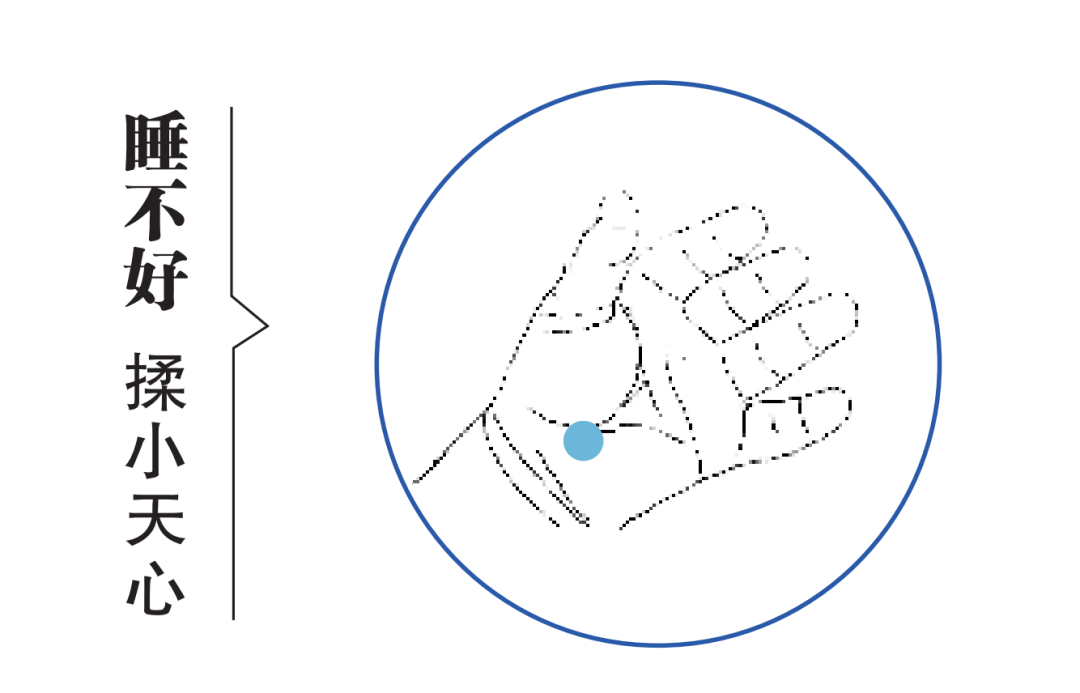
You can also rub the Neilaogong point, located in the center of the child’s palm. Have the child make a fist with their four fingers (excluding the thumb) and the point pressed by the middle finger is the Neilaogong point. This point is on the pericardium meridian and can clear the heart, drain liver fire, cool the blood, moisten dryness, calm the mind, and aid digestion. If the child has internal heat from a cold or is feeling restless, you can rub this point once a day for 300 times.
Children’s sleep issues are often related to the interaction between the heart and kidneys. The heart governs fire, while the kidneys govern water; if heart fire cannot descend to warm kidney yin, and kidney water cannot ascend to nourish heart yang, it becomes difficult for the child to fall asleep.
5. Dry Mouth and Bitter Taste: Clearing the Liver Meridian
Gao Shan notes that in summer, liver fire and heart fire often occur simultaneously. Children with liver fire may exhibit symptoms such as dry mouth, bitter taste, dry eyes, irritability, and anger. In such cases, you can use the technique of clearing the liver meridian, which can help soothe the liver, drain fire, and calm the wind, effectively addressing issues like night terrors, irritability, and bitter mouth that children may experience in summer.
This acupoint is located on the palm side of the child’s index finger, from the base to the tip. During the tuina, parents can position the child’s palm upwards, placing the child’s index finger at the tiger’s mouth of their left hand, then using their right hand to push from the tip of the child’s index finger towards the fingertip with appropriate force, for about 3 to 5 minutes.
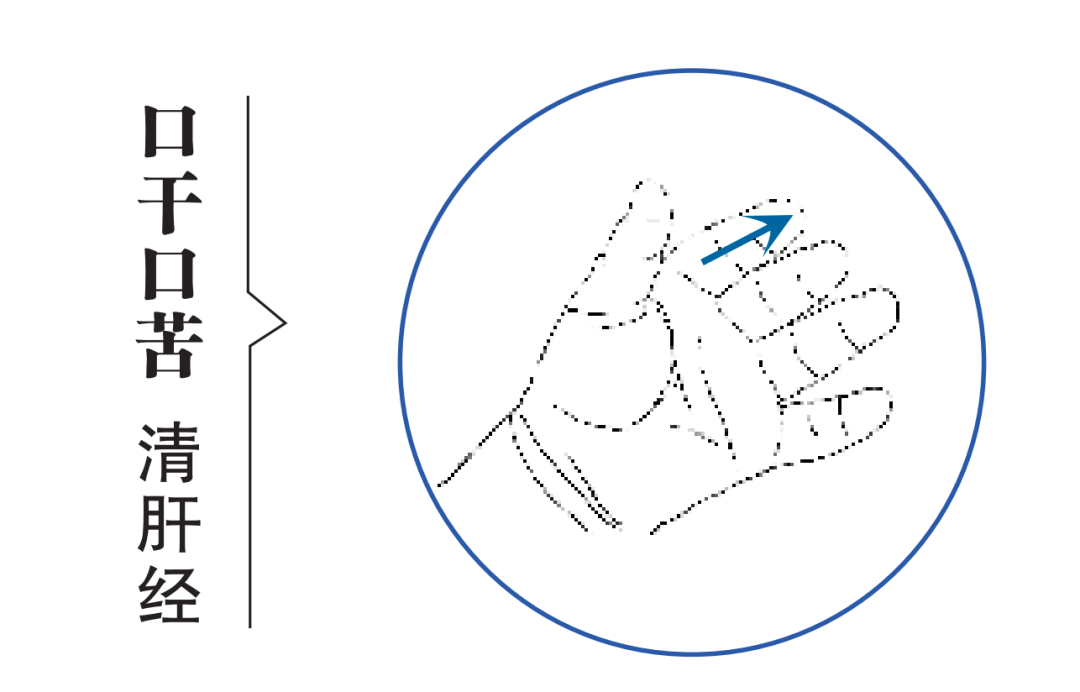
Children with these symptoms often also experience dry stools and constipation, so it is important to clear the large intestine. Push along the radial side of the index finger from the base to the tip to clear the large intestine. You can also push along the seven vertebrae from the fourth lumbar vertebra to the coccyx. Pushing downwards is for purging, which can relieve constipation; pushing upwards is for tonifying, which can treat diarrhea.
6. Cold Hands and Feet: Pinching the Spine
Xu Youjia mentions that in summer, when the weather is hot, children may sometimes feel low in energy, easily fatigued, and may sweat profusely with a pale or yellowish complexion, which are all signs of qi deficiency.
Children with yang deficiency are prone to recurrent colds and coughs, often feeling cold, having cold hands and feet, poor appetite, loose stools, and may experience diarrhea that worsens with cold foods, as well as frequent nighttime urination or enuresis. In such cases, pinching the spine can help tonify yang qi.
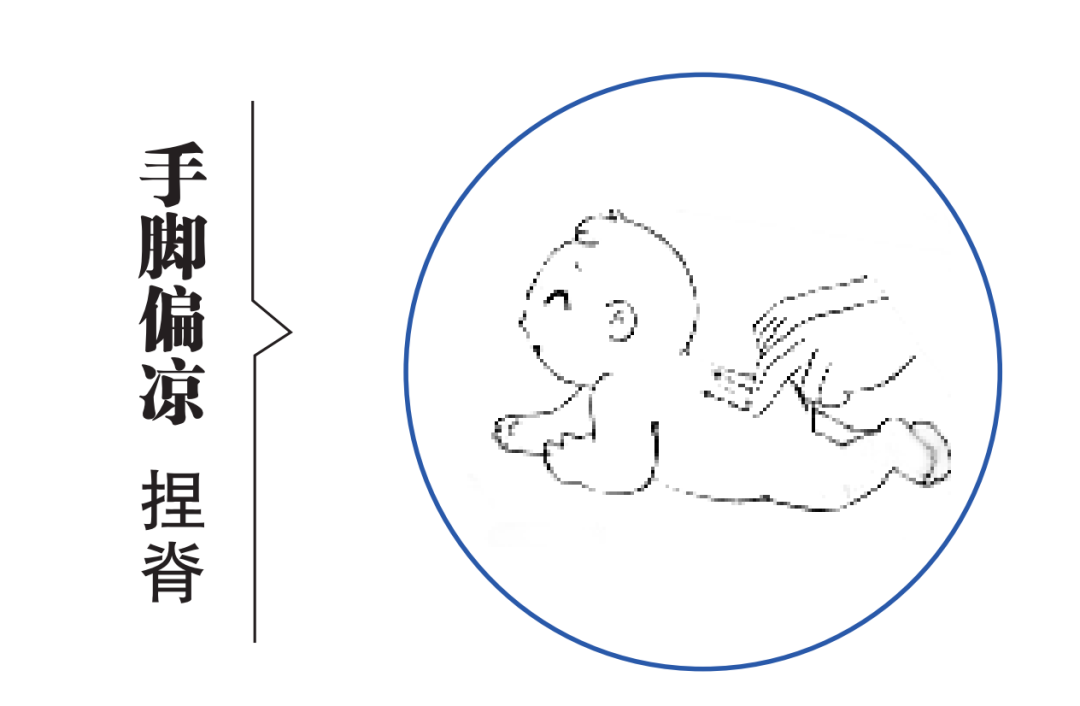
The direction of pinching the spine can be either upward or downward, with different effects. For children, upward pinching is generally used to tonify yang qi and support righteous qi, enhancing immunity. This method is suitable for symptoms primarily associated with deficiency-cold, such as food accumulation, constipation, diarrhea, and colds, and can be used for both treatment and daily health maintenance.
Additionally, if the child has excess conditions or is experiencing fever, it is not suitable to perform spine pinching; parents should be cautious. (Images from “Pediatric Tuina for Common Ailments,” China Traditional Chinese Medicine Publishing House, Author: He Shizhen)
This article was first published on June 25, 2021, in Health Times, Issue 1803, “Pediatric Tuina for Minor Ailments”
More health knowledgeLong press to recognize the QR codeDownload the People’s Daily Health App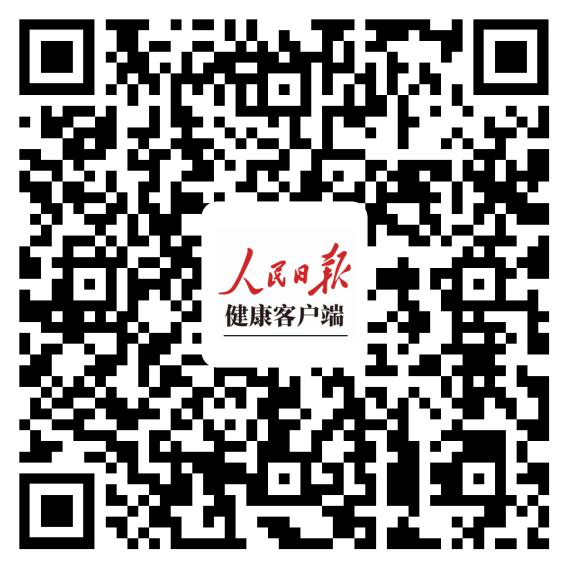
More exciting articles:
Be aware! This blood type is more prone to thrombosis! Remember these points, simple yet effective!
Many young people have put themselves in a difficult position: at 30 years old, the ovaries are like those of a 40-year-old, and stomach pain started in their teens…
After the Dragon Boat Festival, “Toxic May” has arrived! Keep these 5 detoxification methods to safely get through the summer!
The left liver has been hollowed out, filled with worm eggs… Doctors remind: when eating in summer, be careful not to make this mistake!
Article edited by: Lin Jing, Ren Xuan; Chief Reviewer: Yang Xiaoming

